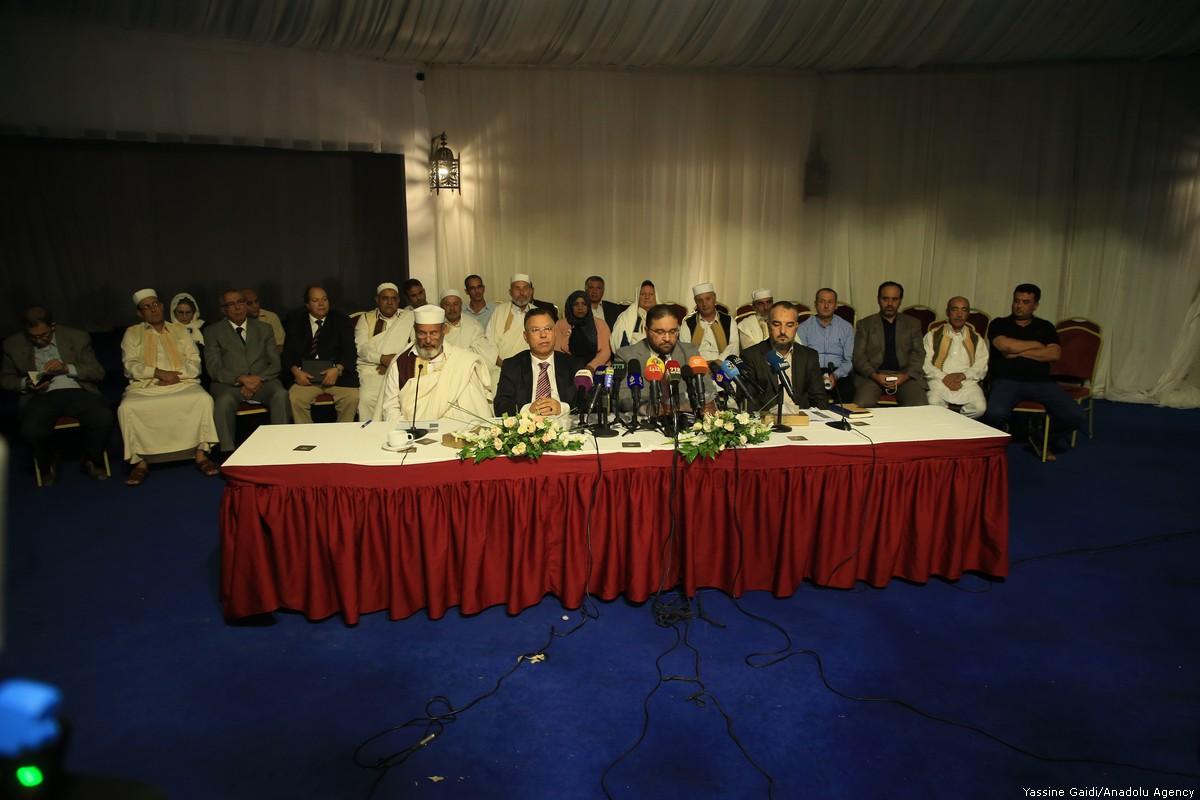The Libyan Peace Group on Wednesday launched an initiative aimed at achieving comprehensive national reconciliation to end the crisis in Libya.
The group includes representatives of the February 17th Martyrs Brigade who overthrew the regime of Muammar Gaddafi, leaders of the Gaddafi regime and the Karama process launched by Khalifa Haftar’s forces.
In a press conference, member of the initiative, Ashour Al-Arifi, said that “the best solution is to create a national authority which represents all the segments of the Libyan people.
“This would “adopt a genuine national project, which the Libyan people can rally around, and provides national leaders able to find a solution in Libya under the slogan of comprehensive national reconciliation,” he added.
Since the overthrow of the Qaddafi regime, Libya has been plagued by security chaos and a struggle for legitimacy and authority, which is now centered between the internationally recognised Government of National Accord in the capital Tripoli, and the “interim government” backed by Khalifa Haftar in the east.
Al-Arifi, who is a representative of the February 17th Martyrs Brigade went on to say: “It is necessary to begin with preliminary steps to overcome the current crisis through a series of stages, beginning with the pressure on the presidential council (the Government of National Accord) by delegating its powers to the head of a small national government of technocrats which adopts a time-bound work programme that achieves goals to resolve the crisis.”
He explained that the stages of achieving the initiative are to “end the war, dissolve all armed groups, ceasefire, keep only the regime police forces, and authorise the head of the executive government to be a crisis government with a clear and time-bound work programme.”
Yousif Kashouna, head of the Gaddafi backing Libyan Peace Group, said: “This initiative, which brings together leaders from the Karama process, the former regime and the February 17th Martyrs Brigade, stems from the cries of the citizens, the tears of the poor and the displaced, and from the clutches of corruption and terrorism.”
The United Nations is making efforts to resolve the Libyan conflict as part of a road map that includes holding parliamentary and presidential elections before the end of this year, but Libyan and foreign parties are questioning the possibility of holding elections amidst continued unrest in the country. – Memo




